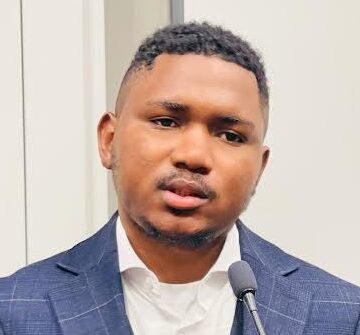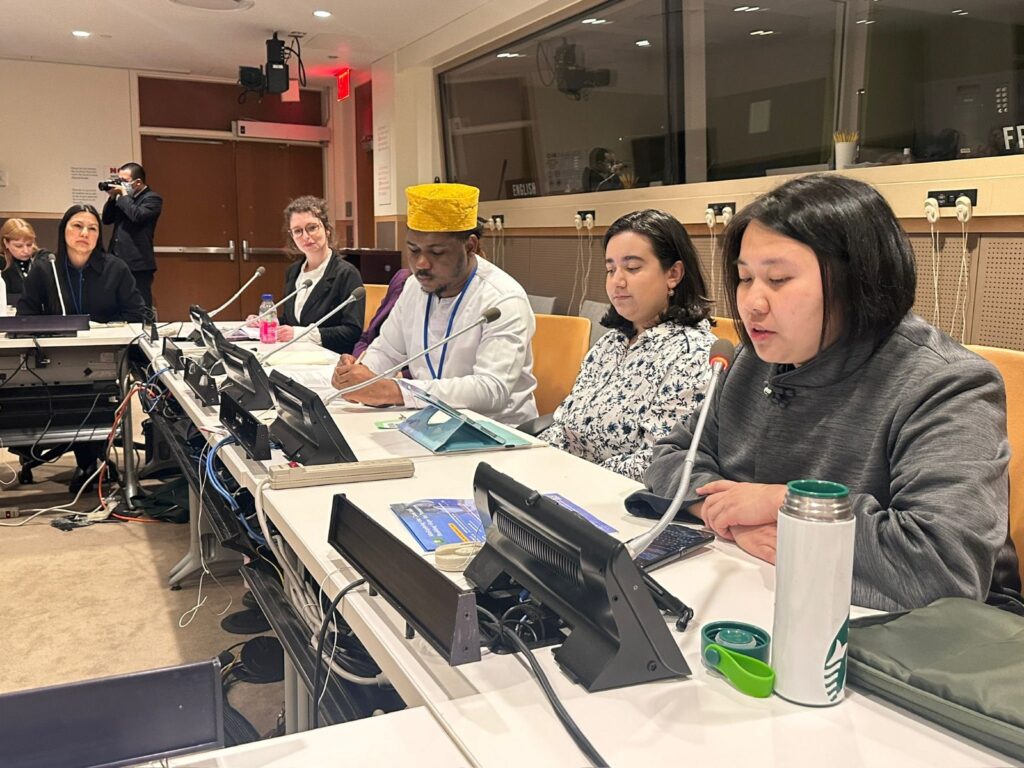20 March 2024, New York. — At the United Nations Headquarters in New York, pivotal moments unfold not only in grand assemblies but also in intimate gatherings where individuals convene, exchange ideas, and spark initiatives. The Sixty-Eighth Session of the Commission on the Status of Women (CSW68) stands out for its dedicated focus on progress.
Within this framework, the Empowering Women Leaders in Civil Society for Global Change session underscored the pivotal role of Civil Society Organizations (CSOs) in advocacy and policymaking, shedding light on their significance as agents of transformation.
Civil society has long been intertwined with the United Nations, advocating for principles and translating them into local action. With the imminent Summit of the Future, the vital contribution of civil society to catalyzing change takes center stage.
Why Civil Society Organizations?
From the birth of the United Nations in San Francisco to the present day, civil society has been a critical player in global governance, championing transformative ideals and translating them into action on the ground. As we stand on the cusp of the Summit of the Future, the importance of harnessing civil society’s immense potential for change has never been clearer.
The session at the United Nations Headquarters in Manhattan, New York, moderated by Wantoe T. Wantoe from Liberia and attended by speakers from all walks of life, aimed to delve into the critical topic of empowering women leaders within civil society and beyond. Wantoe initiated the session by expressing gratitude and setting the stage for a collaborative discussion. He emphasized the indispensable role of civil society organizations in global diplomacy and governance, particularly in advocating for transformative change and grassroots solutions. The session aligned with the theme of CSW68, focusing on gender equality and empowerment.
Sarah Syed, a 19-year-old climate and women rights activist and UN-Habitat Youth Advisor, encouraged reflection on creating inclusive spaces and promoting gender diversity within leadership roles. Particularly, Sarah discussed the role women play in building sustainable cities. She discussed how energy poverty is a barrier in many countries, especially for marginalized groups like Indigenous women and girls. She explained that at the heart of sustainable cities means ensuring all communities have access to basic rights like education. She emphasized the importance of engaging diverse perspectives to build a sustainable future and the role CSO’s play in building an intergenerational supported tapestry that gives women and girls the opportunity to step into their leadership positions.
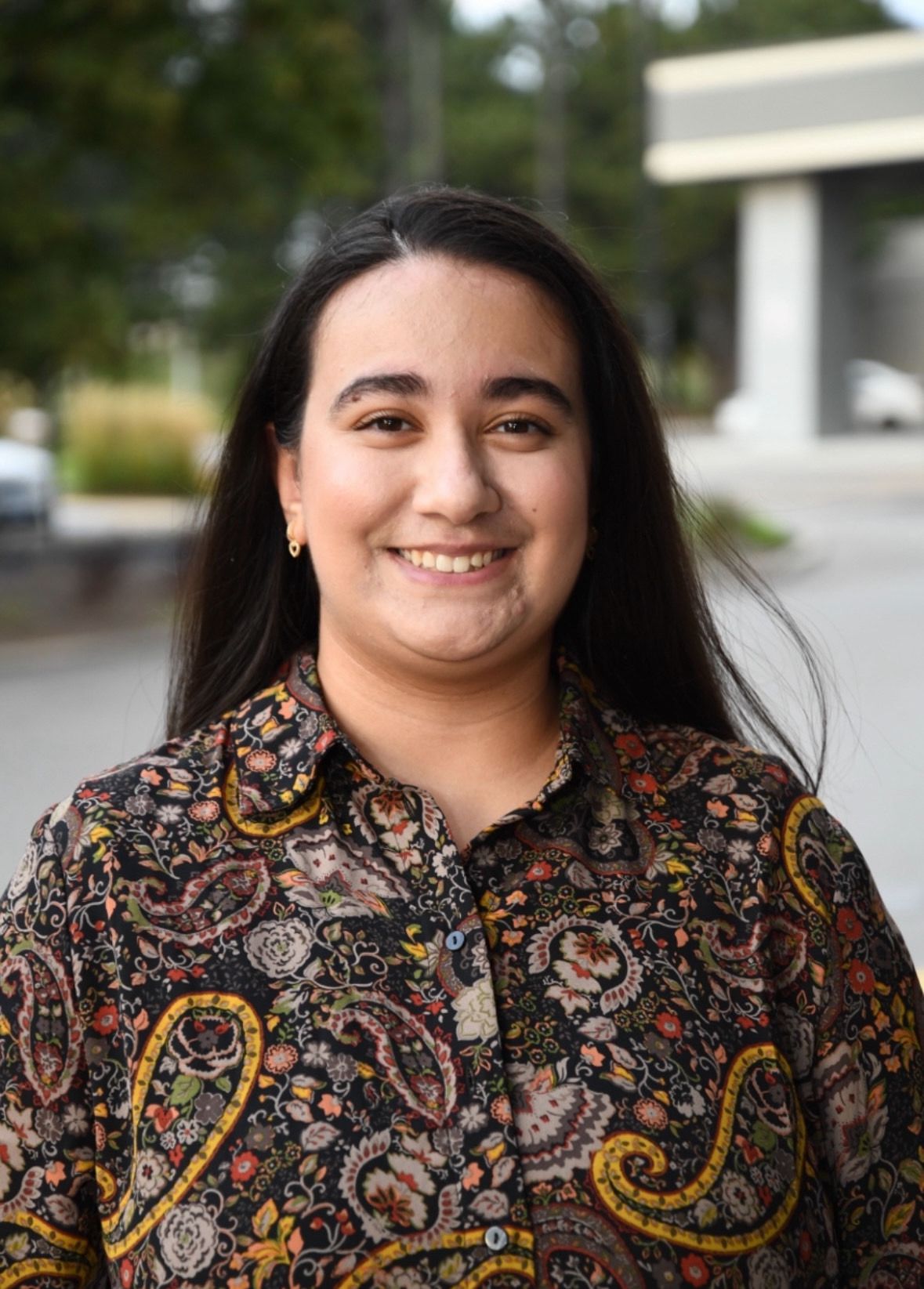
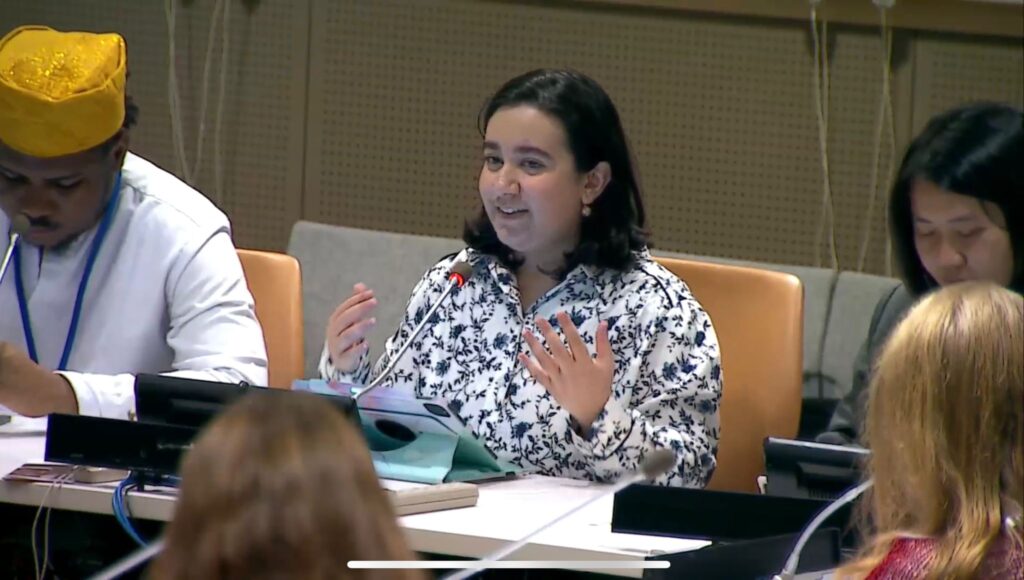
Ali Mustafa, youth advocate, AFS Representative to the UN and founder of International Youth Conference, began his address by underscoring the demographic significance of women, especially in the global South, where the majority of the population is young. He highlighted the marginalization of women’s voices in decision-making processes, particularly within civil society organizations. Ali stressed the importance of empowering young women to participate in policymaking and decision-making at all levels.
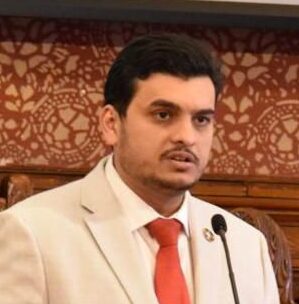
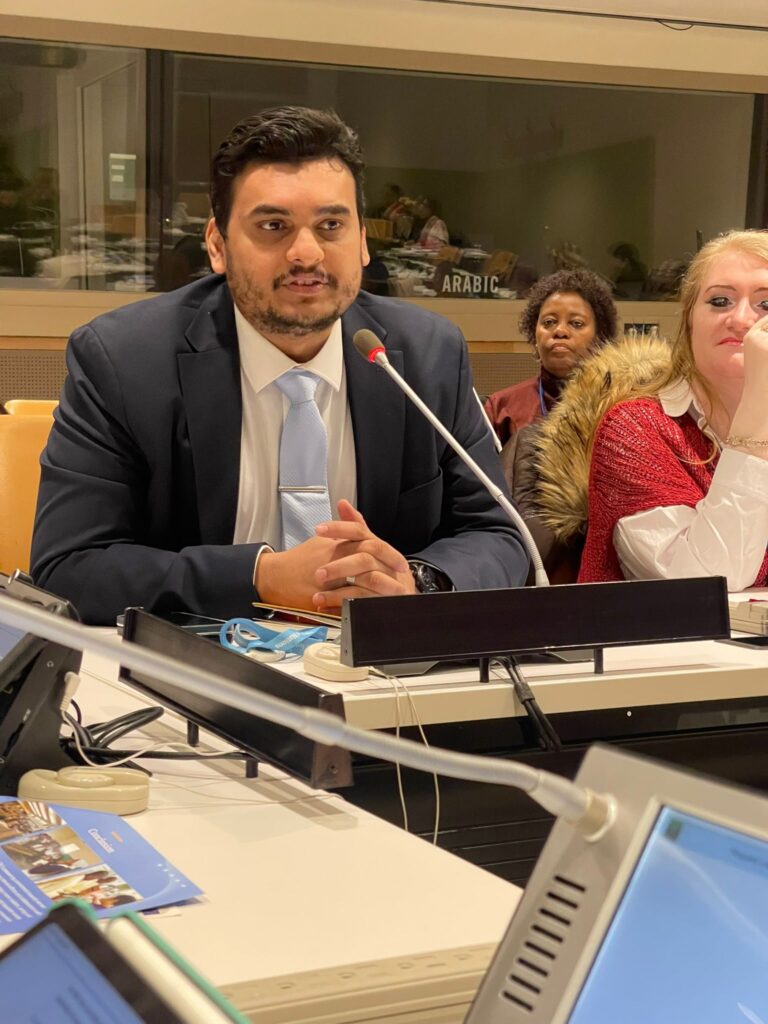
It’s hard to argue with Ali, as at the heart of his words and this event lies a simple yet profound truth: women, as leaders within civil society, are not just agents of change but its very architects. With a focus on “Accelerating the achievement of gender equality and the empowerment of all women and girls,” CSW68 sets the stage for a discourse that inspires action.
After Ali’s intervention, Hawa Taylor-Kamara Diallo, Chief of the Civil Society Unit at the NGO Relations and Advocacy Section within the Department of Global Communications, shared personal anecdotes emphasizing the multitude of roles that a woman assumes in her daily life and at work, raising the topic of the importance of gender equality and women’s empowerment, both within the UN and in her personal life. “Women often juggle multiple roles and wear various hats in their lives, and today is one of those days when I find myself wearing all my hats as a woman, a mother, and a sister,” Hawa mentions. She continues, “CSW really means a lot to me because all these different hats I’m wearing become intertwined and convoluted. CSW addresses issues related to gender equality and helps navigate the complexities of these diverse roles and identities that women hold.” Hawa also highlighted the need for inclusivity and starting conversations about gender roles at the familial level.
The concept and objectives of this gathering are as ambitious as they are essential. Here, we aim to elevate the voices of women in civil society, shedding light on their invaluable contributions and the challenges they face. Through dialogue, best practices sharing, and partnership building, we aspire to pave the way for a more inclusive, equitable future — a future where women lead not only tomorrow but today.
The audience then got a chance to reflect on women empowerment from a fresh perspective of Rosleny Ubiñas, Youth Representative of the Baha’is of the United States to the United Nations, who addressed the need of “de-genderizing” of the problem. She then emphasized the need to involve men and boys in conversations about gender equality. Rosleny advocated for breaking down gender stereotypes and promoting inclusive leadership styles that value traits traditionally associated with both men and women.
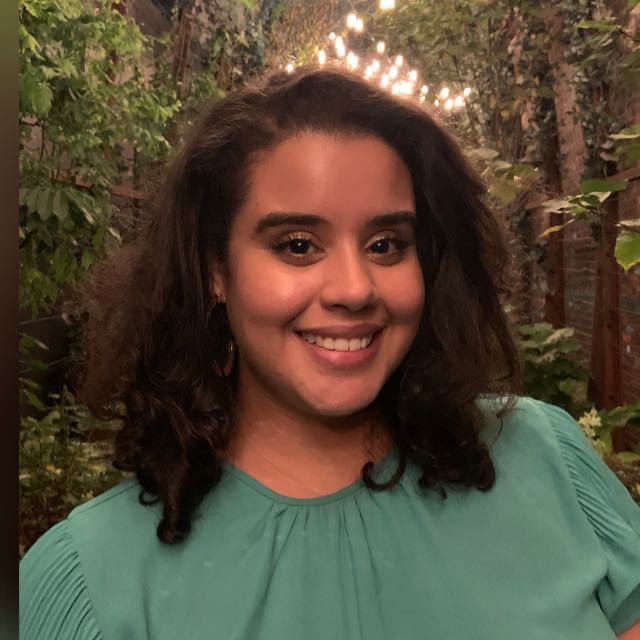
Huey Yi, Youth Representative from the Buddhist Tzu Chi Foundation shared initiatives undertaken by the Tzu Chi Foundation to empower women within the organization and the communities they serve. These initiatives include providing leadership opportunities, promoting community-led development, and fostering inclusive cultures.
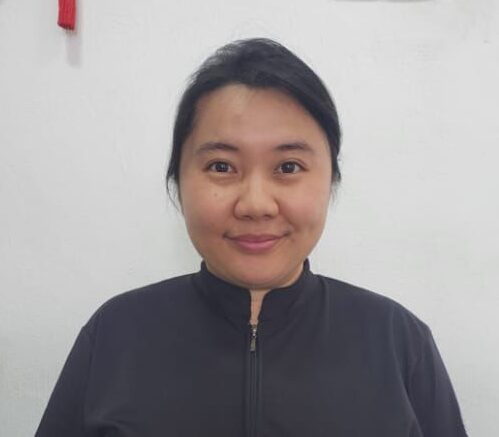
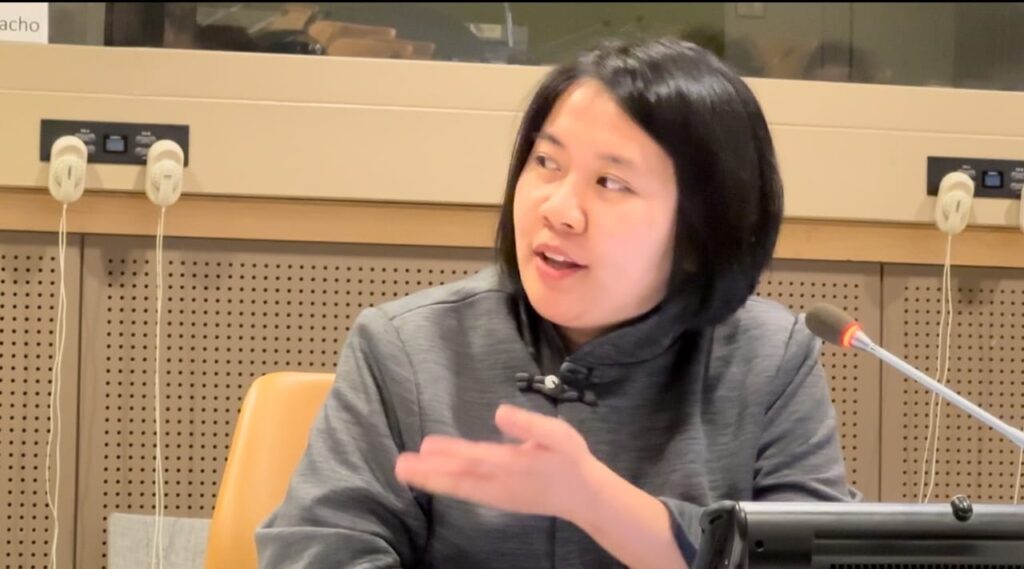
Rory Mondshein, a youth representative for the Humanitarian Focus Foundation, addressed the audience, highlighting the importance of amplifying diverse voices, especially during Neurodiversity Awareness Week. Rory emphasized the need for inclusive representation, sharing their experience from the G20 Youth Summit, where they created hubs addressing various issues like racial justice, climate justice, and gender justice. They stressed the importance of training and empowerment for women leaders, advocating for a step-up-step-back leadership model to create space for others to speak up. The Humanitarian Focus Foundation offers free training opportunities and promotes accessibility in its services.
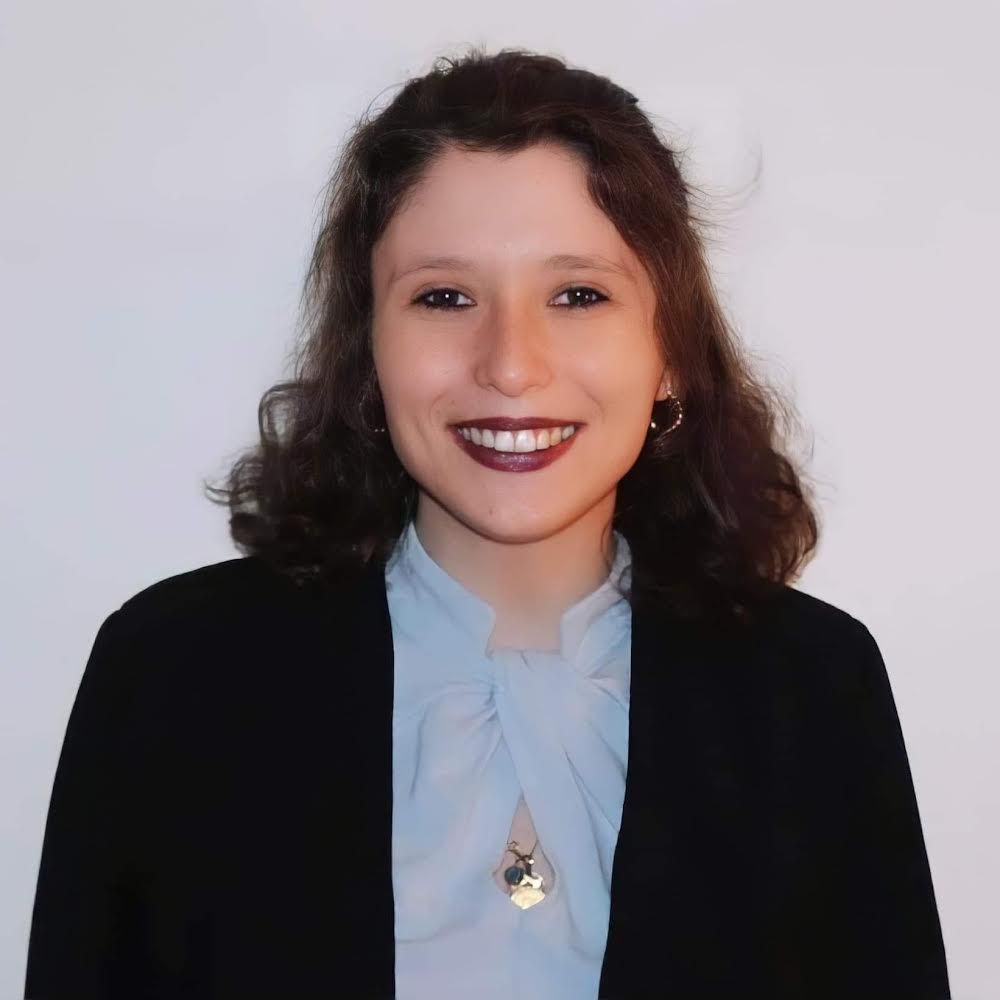
“People Can Call You a Troublemaker, But Sometimes a Good Trouble Is Necessary”
As the event unfolds, expect a rich tapestry of keynote addresses, panel discussions, and interactive sessions designed to ignite minds and spark collaboration. Our goal? To emerge with actionable recommendations, a framework for ongoing partnership, and heightened awareness of the pivotal role women play in shaping our world.
Following Rory’s address, other speakers shared their experiences. Rosleny reflected on her experience with the DGC steering committee, highlighting the focus on youth empowerment and inclusive representation at conferences. Sarah discussed her work with the UN Habitat, advocating for gender empowerment in sustainable urban development. Ali shared examples from the AFS Intercultural Program, emphasizing its role in empowering women leaders. Huey Yi shared examples from the T Xu Qi Foundation, focusing on providing access to education and economic opportunities for women and girls. Finally, Rory discussed encouraging young women to pursue leadership in humanitarian work, emphasizing the importance of giving people a platform to share their stories and address social challenges.
The session featured a diverse range of voices from different regions and backgrounds, all focused on the empowerment of women and girls. Participants raised questions and shared insights on various challenges and opportunities related to women’s empowerment.
Blanca, representing Mono Cafe in Peru, highlighted issues such as deforestation and women’s empowerment in the Amazon rainforest. She emphasized the need for public policies to support women who do unpaid work at home.
Maria from Mexico asked about advice for implementing empowerment programs in a country with high levels of corruption and poverty.
A participant legislator from Kenya, raised concerns about women being burdened with unpaid social protection roles, hindering their access to education and employment. He called for strategies to address this gap, either through government intervention or paid social protection roles.
A participant from Gambia discussed the challenges of patriarchy and illiteracy faced by women in her country, inhibiting their participation in politics and decision-making. She asked how women can come together to support each other despite societal barriers.
Ali emphasized the importance of civil society organizations in connecting marginalized populations, especially youth, with opportunities for empowerment. He discussed efforts to bridge the gap between grassroots communities and the UN system.
Sarah highlighted the need for promoting women’s leadership in decision-making spaces and suggested initiatives such as affordable childcare and economic empowerment programs to support women’s education and career opportunities.
Rosleny emphasized the importance of local community initiatives in promoting gender equality, suggesting that small-scale changes can have a significant impact on shifting societal norms. Rory discussed the economics of exclusion and advocated for marketing initiatives to those benefiting from inequality, showing them the benefits of promoting equality.
Naomi from Cameroon shared her experiences addressing menstrual hygiene issues in Ghana and emphasized the importance of exchange programs for healthcare professionals, while Satta The intervention from the floor by Satta Sheriff, human rights activist from Liberia, was met with applause by the audience. She shared how young people in Liberia initiated change by demanding the President declare a national emergency to address sexual and gender-based violence. Through collective action, they compelled the government to invest in combating rape and establish measures to protect victims. Satta emphasized the power of speaking up and urged others not to underestimate the impact of their voices in driving positive change.
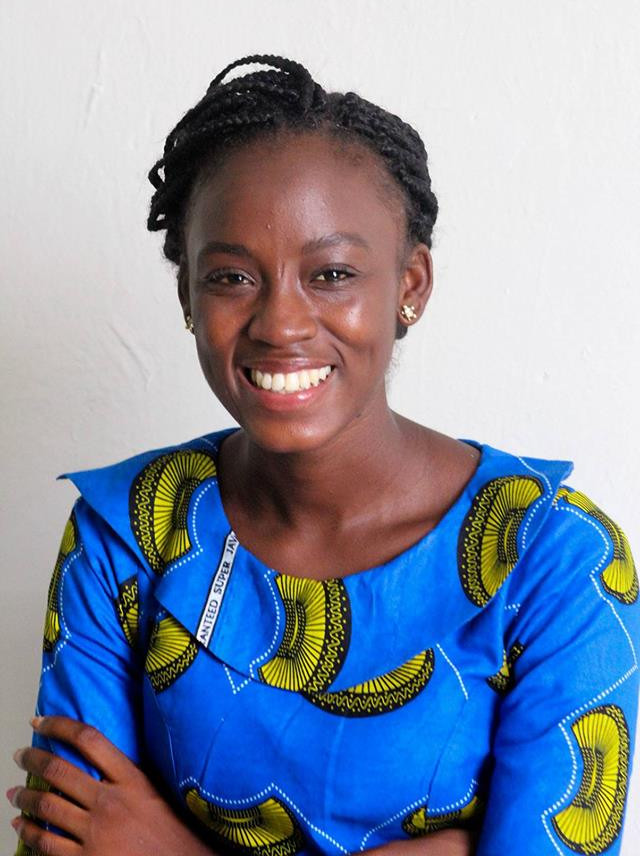
The session concluded with Wantoe highlighting upcoming opportunities for engagement, including the US Civil Society Conference in Nairobi and the upcoming 29 sessions of the Youth Assembly in New York, urging participants to continue advocating for women’s empowerment and meaningful dialogue.
Next Steps: Civil Society Organizations Must Embrace Their Historic Mission Of Women Empowerment
Overall, the session highlighted the multifaceted approaches needed to empower women leaders within civil society, from addressing systemic barriers to promoting inclusive cultures and engaging diverse perspectives. Through collaboration and concerted efforts, participants aim to drive tangible progress towards gender equality and women’s empowerment globally. In the wake of our event, we’ve achieved notable outcomes aimed at bolstering women’s leadership in civil society.
But this event is more than just a gathering — it’s a movement in motion, a ripple poised to become a wave. The findings from this session will echo far beyond the halls of the United Nations, resonating at the upcoming UN Civil Society Conference in Nairobi, May 9-10.
Join us as we embark on a journey of empowerment, collaboration, and change. Together, let’s rewrite the narrative of leadership, amplifying the voices of women in civil society and forging a brighter tomorrow for all. This is not just a discussion — it’s a call to action, a promise of progress, and a testament to the transformative power of unity.
Are you ready to be part of the change? Then step into the spotlight and join us on this extraordinary journey. Together, we can shape a world where every voice is heard, every dream is realized, and every woman stands as a beacon of hope for generations to come.
